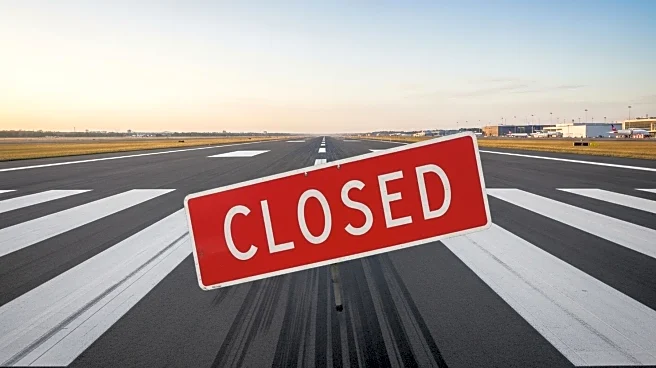What's Happening?
The U.S. Travel Association has issued a warning about the severe economic impact of a potential government shutdown, estimating a loss of $1 billion per week for the travel economy. The association's President and CEO, Geoff Freeman, emphasized the preventable nature of such a shutdown and its detrimental effects on millions of travelers and businesses. Disruptions in air and rail travel, along with the closure of national parks and museums, are expected to contribute to the economic loss. A survey by Ipsos indicates that a majority of Americans believe a shutdown would harm the economy and disrupt air travel, with many expressing a desire for bipartisan cooperation to prevent it.
Why It's Important?
A government shutdown could have far-reaching consequences for the travel industry, affecting airlines, hotels, and tourism-related businesses. The potential loss of revenue could lead to job cuts and reduced services, impacting both domestic and international travel. The shutdown could also strain federal travel workers and delay infrastructure modernization efforts. Public sentiment against a shutdown suggests political repercussions for lawmakers who support it, potentially influencing future elections and policy decisions.
What's Next?
Congress faces pressure to act before October 1 to prevent a shutdown and mitigate its impact on the travel economy. Lawmakers may engage in negotiations to reach a funding agreement, with stakeholders in the travel industry advocating for swift action. The situation remains fluid, with potential for last-minute legislative maneuvers to avert the shutdown.
Beyond the Headlines
The threat of a government shutdown highlights broader issues of political gridlock and its impact on economic stability. It raises questions about the effectiveness of current governance structures and the need for reform to prevent recurring shutdowns. The situation also underscores the importance of maintaining public trust in government institutions.










